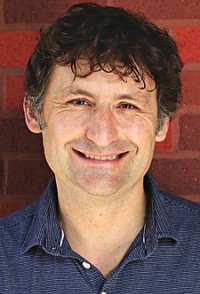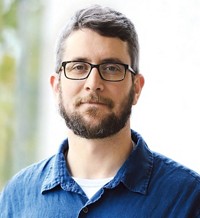Advertisement
Grab your lab coat. Let's get started
Welcome!
Welcome!
Create an account below to get 6 C&EN articles per month, receive newsletters and more - all free.
It seems this is your first time logging in online. Please enter the following information to continue.
As an ACS member you automatically get access to this site. All we need is few more details to create your reading experience.
Not you? Sign in with a different account.
Not you? Sign in with a different account.
ERROR 1
ERROR 1
ERROR 2
ERROR 2
ERROR 2
ERROR 2
ERROR 2
Password and Confirm password must match.
If you have an ACS member number, please enter it here so we can link this account to your membership. (optional)
ERROR 2
ACS values your privacy. By submitting your information, you are gaining access to C&EN and subscribing to our weekly newsletter. We use the information you provide to make your reading experience better, and we will never sell your data to third party members.
People
Chemists named Blavatnik laureates
Yi Cui and Melanie Sanford win $250,000 prize
by Linda Wang
June 28, 2017
Chemists Yi Cui and Melanie S. Sanford are among the three winners of the 2017 Blavatnik National Awards for Young Scientists, established by the Blavatnik Family Foundation and administered by the New York Academy of Sciences.

The awards honor exceptional young scientists and engineers, and each winner receives an unrestricted cash prize of $250,000.
Sanford is Moses Gomberg Distinguished University Professor of Chemistry and Arthur F. Thurnau Professor of Chemistry at the University of Michigan. She was named the 2017 Blavatnik National Laureate in Chemistry.
Cui is a professor of materials science and engineering at Stanford University. He was named the 2017 Blavatnik National Laureate in Physical Sciences & Engineering.
Sanford is developing new synthetic methods for the synthesis of organic molecules.
She aims to develop methods to form bonds or put molecules together in ways that were not previously possible.
“Ultimately we aim to apply these methods in developing greener routes to important molecules, such as pharmaceuticals, agrochemicals, radio-tracers, and energy storage materials,” she says. “This award is an incredible honor. “It is a huge testament to the phenomenal training that I have received from my teachers and mentors throughout the years as well as the amazing undergraduates, graduate students, and postdocs that I have been so fortunate to work with over the last 13 years of my independent career.”
Sanford says she hopes the award will bring broader recognition to the critical importance of supporting basic research in organic and inorganic chemistry.
Cui is using nanomaterial research to pursue challenges in energy and environmental sciences, particularly in the development of the next generation of batteries. Among his inventions are a cooling textile that can save electricity in air conditioning, and a technique for tuning catalyst activity in battery cells to make them more efficient.
“I hope that my research can change the world with high impact technologies generated particularly in the area of energy and environment,” Cui says. “This award will offer the resources to help me focus on what I do.”
The third laureate is MIT neuroscientist Feng Zhang. The award ceremony will take place in New York City on Sept. 25.






Join the conversation
Contact the reporter
Submit a Letter to the Editor for publication
Engage with us on Twitter